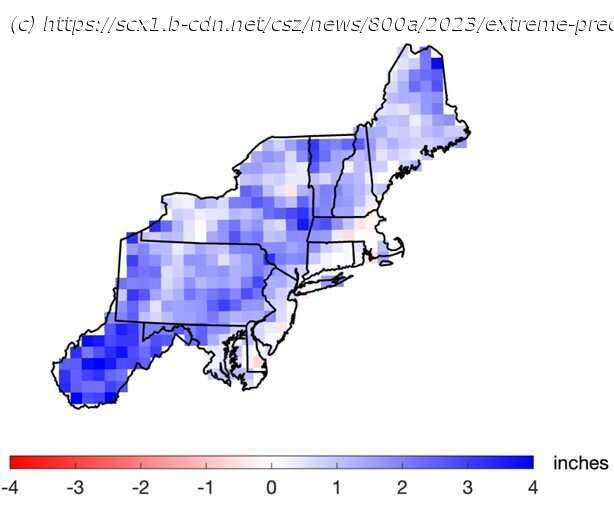With a warmer climate creating more humid conditions in the Northeast, extreme precipitation events—defined as about 1.5 or more inches of heavy rainfall or melted snowfall in a day—are projected to increase in the Northeast by 52% by the end of the century, according to a new Dartmouth study.
With a warmer climate creating more humid conditions in the Northeast, extreme precipitation events—defined as about 1.5 or more inches of heavy rainfall or melted snowfall in a day—are projected to increase in the Northeast by 52% by the end of the century, according to a new Dartmouth study.
The findings are published in Climatic Change.
“As climate change brings warmer temperatures, you have more water vapor in the atmosphere, which creates the right conditions for extreme precipitation,” says first author Christopher J. Picard ’23, an earth sciences major and undergraduate researcher in the Applied Hydroclimatology Group at Dartmouth.
“Our findings show that this increase in extreme precipitation will be primarily driven by more frequent heavy rainfall events, not by the intensity of such events,” says Picard. “In other words, we expect a large increase in the number of extreme precipitation days, and a smaller increase in the amount of rain on each extreme precipitation day.






